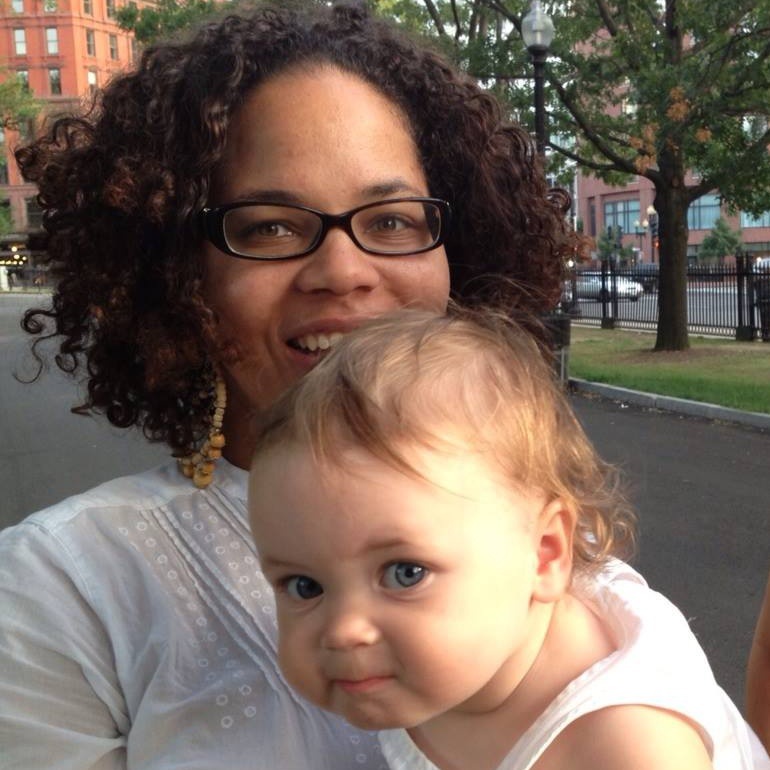Globe Correspondent
Eugenia Gibbons will bundle up her 15-month old daughter, Sylvie, on Monday for the child’s first Washington protest: a “stroller brigade” of mothers and others unhappy about the chemicals that surround us.
The Revere woman and three others from Massachusetts will join parents and their children from 35 states, converging on the capital to lobby for better federal protections from toxic chemicals.
 “It’s really important for our elected leaders to hear what their constituents want,” said Gibbons, 33. She works for the Environmental League of Massachusetts, but said she is donning her “mom hat” to go to Washington.
“It’s really important for our elected leaders to hear what their constituents want,” said Gibbons, 33. She works for the Environmental League of Massachusetts, but said she is donning her “mom hat” to go to Washington.
“When I became a mom it blew my mind to see how much we were exposing our children to chemicals in the food they eat, the clothes they wear… it’s just in stuff everywhere.”
The “stroller brigade” movement grew from 40 local protests around the country and arrived in Washington in May, 2012, to protest the failure of federal law to properly regulate the toxic chemicals that have become a part of our modern life. The campaigners will gather again Tuesday to hold a rally and then fan out to lobby their congressional representatives.
“The rate of so many illnesses and disorders linked to toxic chemicals is rising,” said Elizabeth Saunders, director of the Massachusetts Clean Water Action group, which is helping organize the stroller brigade. “One in eight women will get breast cancer in their lifetime. One in two men, and one in three women will get cancer. Asthma is the biggest reason for kids missing schools.”
Toxic chemicals in consumer goods and work places are suspect in many of these diseases. In 1976, the federal government passed the Toxic Substances Control Act, but it has succeeded in regulating only a small number of the chemicals used in products.
It is “a broken law,” said Lindsay Dahl, deputy director of a coalition of interest groups called Safer Chemicals, Healthy Families, which is organizing the Washington protest. She said demands for better regulation have grown rapidly as the public learns of the shortcomings of the existing law.
“The majority of the public assumes the EPA or the federal government is looking out for them on this issue. When they learn that is not happening, they are shocked,” she said by telephone from Washington.
The politics of the effort in Washington are delicate, however. The “stroller brigades” supported tougher legislation proposed by New Jersey Sen. Frank Lautenberg, who died in June. In May, he co-sponsored a new bill, called the Chemical Safety Improvement Act, in an attempted compromise.
The new bill would give the EPA power to take more action on chemicals, according to Rick Reibstein, a legal expert who teaches environmental law in the Sustainability and Environmental Management program at Harvard Extension School. But it also would undercut regulation in states that have more ambitious laws, such as Massachusetts and California. “These laws would be in danger of repeal,” he said.
“The bill falls short of adequately protecting people,” Dahl said. So the mothers in Washington will be lobbying for the intent of the legislation, but against the version of the bill that is now before the Senate.
“We think it is common sense,” she said. “Why would we not remove toxic chemicals that have been shown to be carcinogens from the products we have contact with every day?” Dahl said she believes Congress will support that effort as it hears from more of its constituents.
“We have seen an absolute groundswell on this issue. Five years ago, no one knew what bisphenol-A was,” she said, referring to the chemical found in plastic food containers—and the urine of most Americans. “Now, everyone knows BPA.”
Gibbons said she is taking a secret weapon to Washington—Sylvie. “She is super cute,” Gibbons said with the pride of a mother. “I look down at my child every day and say, ‘I have to do this for you, because you are going to inherit whatever we leave you.’”
